
Cardi B thinks she's being haunted by a ghost who fancies her
Cardi B has revealed that she believes her Los Angeles house is haunted by a ghost who wants to "f***" her. The rapper detailed her paranormal encounter on Instagram Live where she noted how the ghost seemingly appears when her husband Offset isn't in the house. "I start hearing like a fly sound, right?" Cardi B said in the video, recalling what she experiences when she believes the ghost to be in her presence. “Bro, I haven't been able to find the f***ing fly, I started hearing this sound in the hallway. “It sounds like somebody's on the phone." Clearly spooked by the noise, the Bongos rapper asked her security guard to investigate the sound - only for the noise to stop when he appeared. "B****, tell me how the sound is gone? It's gone out of nowhere," she said. "All I'm saying to you is that there's a f***ing ghost or spirit in this f***ing house." "When I'm alone, it always wanna f*** with me," she added, believing this to be the reason why it only appears when she's alone. "Mind you, when I be in the house in Atlanta or New York, there's nothing." "I'm so disoriented because I'm so alone in this house with this f***ing ghost that clearly wants to f*** me because he only comes around when I'm here and by myself.” “I’m f***ing over it,” she concluded. Now an episode of Ghost Hunting with Cardi B would be epic. Sign up to our free Indy100 weekly newsletter Have your say in our news democracy. Click the upvote icon at the top of the page to help raise this article through the indy100 rankings
2023-09-28 21:23
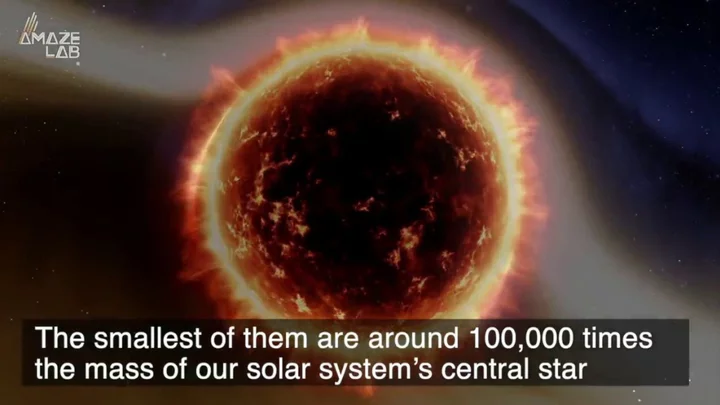
Scientists confirm that the most iconic black hole in the universe is spinning, in major new discovery
Scientists have confirmed that the first black hole to ever be captured on camera is spinning in a major new discovery. The famous doughnut-shaped M87* black hole, 6.5 billion times more massive than the sun, first drew people’s attention in 2019 for becoming the first void to be pictured. Now, it has been confirmed that the M87* black hole is spinning, but experts have yet to determine just how fast. The announcement was made on 27 September. M87* has been observed for the last two decades via a network of radio telescopes. It is located in the Messier 87 (M87) galaxy, which is around 55 million light-years away from Earth in the Virgo constellation. The instruments monitoring the black hole have observed a powerful jet of radiation and particles being expelled from its poles. According to research, the relativistic jets appeared to be on a kind of pendulum that swings every 11 years, observed over decades. Experts believe this is caused by interactions between gravitational interactions between the black hole and the material making up the disk around it. They say this provides “unequivocal evidence” that the black hole is spinning. Cui Yuzhu, a researcher at Zhejiang Lab in China and the study’s lead author explained in a statement: “We are thrilled by this significant finding,” adding, “Since the misalignment between the black hole and the disk is relatively small and the precession period is around 11 years, accumulating high-resolution data tracing M87’s structure over two decades and thorough analysis are essential to obtain this achievement.” Their findings matched with computer simulations, confirming that the jets emitting from the black hole change direction by around 10 degrees every 11 years. Sign up to our free Indy100 weekly newsletter Have your say in our news democracy. Click the upvote icon at the top of the page to help raise this article through the indy100 rankings.
2023-09-28 20:25

Evergrande: Why should I care if China property giant collapses?
There are reports the leaders of the heavily indebted Chinese property giant have been detained.
2023-09-28 19:26

Time-lapse that took 20 years to make shows legendary stellar explosion
Scientists have spent 20 years putting together time-lapse footage offering a stunning window into the past. Two decades of data taken from NASA’s Chandra X-ray Observatory were used by astronomers to create a video of a stellar eruption that actually occurred 180 years ago. Observations from Chandra, taken in 1999, 2003, 2009, 2014 and 2020 were all used, in combination with data from ESA’s XMM-Newton spacecraft. With the combined data, experts were able to capture the stellar explosion, known as Eta Carinae. Eta Carinae is a famous star system containing two large stars, one of which is around 90 times larger than the Sun, while the other is around 30 times as large. The “Great Eruption” from Eta Carinae is believed to be the result of the merging of two stars that were originally part of a three-star system. Eta Carinae Time-Lapse, Chandra X-ray Observatory www.youtube.com It first took place in the mid-19th century and the aftermath is still continuing to be observed today. New footage shows how the explosion has expanded into space with staggering speeds of up to 4.5 million miles per hour. In a statement, NASA officials explained: “During this event, Eta Carinae ejected between 10 and 45 times the mass of the sun. This material became a dense pair of spherical clouds of gas, now called the Homunculus Nebula, on opposite sides of the two stars.” The Homunculus Nebula is the blue cloud visible in the video, while the growing bright orange ring shows how X-ray emissions have grown and expanded over time. “The new movie of Chandra, plus a deep, summed image generated by adding the data together, reveal important hints about Eta Carinae’s volatile history,” the statement read. “This includes the rapid expansion of the ring, and a previously-unknown faint shell of X-rays outside it.” Sign up to our free Indy100 weekly newsletter Have your say in our news democracy. Click the upvote icon at the top of the page to help raise this article through the indy100 rankings.
2023-09-28 18:53

'Harry Potter' star Bonnie Wright gives birth to her first child
Bonnie Wright, the actress best known for playing Ginny Weasley in the "Harry Potter" movies, has given birth to a boy.
2023-09-28 18:51
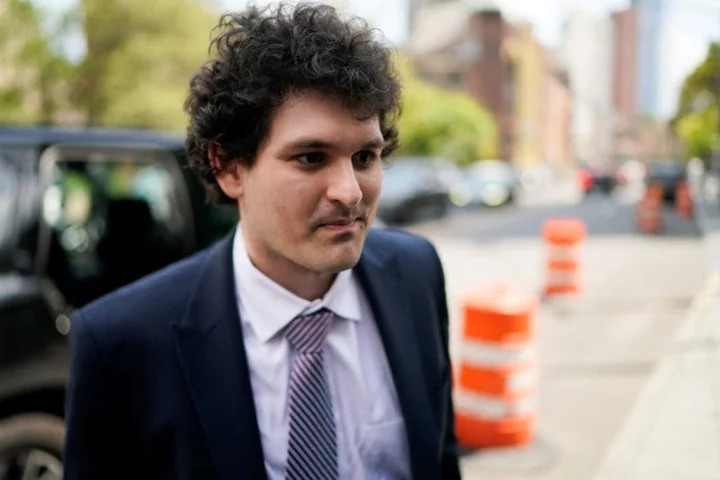
Who is Caroline Ellison, a key witness set to testify against Sam Bankman-Fried?
By Luc Cohen NEW YORK In 2018, a bespectacled Stanford graduate named Caroline Ellison decided to leave her
2023-09-28 18:24

Fans divided over Kourtney Kardashian's clash with 'narcissist' Kim
Tensions continue to rise in the Kardashian family in the latest episode of their famed reality show, The Kardashians. The conflict started last season when Kim Kardashian partnered with Dolce & Gabbana after Kourtney Kardashian collaborated with the brand for her Italian wedding in 2022. She even hosted the big day with Travis Barker at the designers' Portofino house. Kim claimed the pair "were over it," until Kourtney saw last season's edits of Kim talking about her. The show then cut to a scene showing Kim saying Kourtney had no friends. Fast forward to the latest episode, and the family are planning a trip to Cabo. Three days before the scheduled trip, Kim and Kourtney shared a heated phone call that has since divided social media. "You’re talking about the bulls**t details because it’s all your egotistical, selfish mind can think about," Kourtney said. "You cannot stand someone else being the centre of attention. You came to my wedding, you couldn’t be happy, you complained from the second you got there until the second you left." "Forget about you couldn’t be happy, you couldn’t be happy for me." The SKIMS founder then jumped in and asked Kourtney why she thinks "so low of [her]," to which she hit back: "It’s about you! You are a narcissist. It is all about you. "Anything you do, it is about you and about how it looks to the world. So you just want to clear up your facts. Take out my whole f**king side of the episode I don’t give a f**k what anyone thinks about me." Kim then claimed that Kourtney's four kids had come to her with "problems that they had" with her, prompting Kourtney to get emotional. @kardashvideoo Kourtney calls Kim a narcissist and says she hates her #kourtneykardashian #kimkardashian #kardashians #kardashianshulu #thekardashians #fypシ #foryou A snippet from the show was later shared to TikTok, with many criticising Kim for bringing Kourtney's children into the mix. "The kid thing was a low blow," one person wrote, while another added: "When she noticed Kourtney didn’t care much about the friends she brought up her kids to hurt her intentionally." "Nah, Kim was soooo wrong bringing in the kids," a third commented. Another suggested: "Most of us in the comments at one point of our lives has been un Kourtney's situation ... and I'm sure most of us have left toxic family members behind." Meanwhile, one said: "If Kourtney's saying everyone is against her clearly there’s an issue with her attitude." Sign up for our free Indy100 weekly newsletter Have your say in our news democracy. Click the upvote icon at the top of the page to help raise this article through the indy100 rankings.
2023-09-28 18:17

Marketmind: Oil spike delivers coup de grace to dire Q3
A look at the day ahead in U.S. and global markets by Mike Dolan A crude oil price spike to
2023-09-28 18:16

Where is China's defense minister? Beijing keeps silent
China has declined to comment on its defense minister's whereabouts as questions swirl over his status a month after he was last seen in public.
2023-09-28 17:52
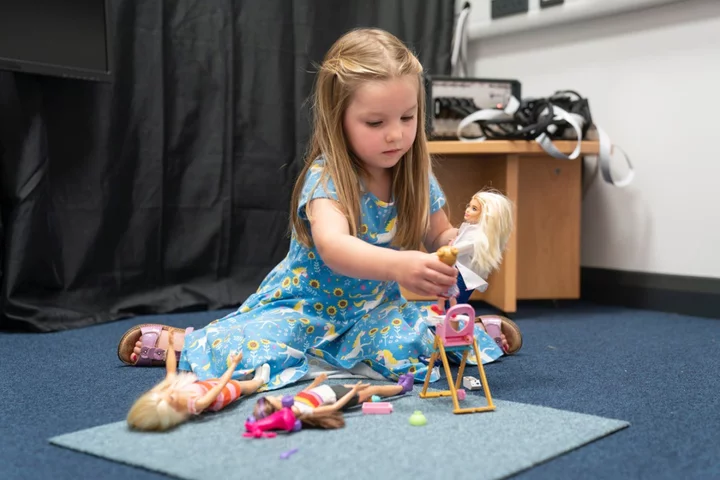
Playing with dolls could help a child’s social development
Playing with dolls could help the social development of children - including those with neurodiverse conditions such as autism, according to a study. The research, from Cardiff University, found children exhibiting higher levels of autism traits showed increased brain activity in a key region associated with social processing when engaging in conversations with individuals during doll play. The new findings suggested that broader social engagement with others while engaging in doll play was a unique pathway to social development for these children. This was in contrast to what was observed in neurotypical children, who were more likely to discuss the dolls’ thoughts and emotions. However, researchers said that despite this difference, it showed that both groups may be able to benefit from doll play by using it as a tool for practising social scenarios and developing social skills, such as empathy. The findings are the latest release from a multi-year study by the Centre for Human Developmental Science at the university’s School of Psychology. Previous years have focused on neurotypical children and found wide-ranging social and developmental benefits of playing with dolls. Now, in its third year, the research team has replicated those results with a more diverse range of participants, including children aged between four and eight displaying both high and low levels of traits associated with autism. Lead researcher Dr Sarah Gerson said: “Our study shows that doll play can encourage social processing in children, regardless of their neurodevelopmental profile. “The findings show that all children, even those who display neurodivergent traits commonly associated with autism, may use doll play as a tool for practicing social scenarios and developing social skills, such as empathy.” State-of-the-art functional, near-infrared spectroscopy equipment was used to explore brain activation while children played with dolls and on tablets, both by themselves and with another person, replicating conditions from the first year of the study. While observing children, researchers saw increased brain activity in the posterior superior temporal sulcus (pSTS) region - which is heavily involved in social and emotional processing such as empathy - when playing with dolls, for both play with a social partner and during solo doll play, but less so during solo tablet play. The study’s results suggest that doll play could support social processing, regardless of a child’s neurodevelopmental profile, but through different pathways. For children displaying fewer autistic traits in the research, talking about the mental states and emotions of the dolls they were playing with was associated with increased pSTS activity. In contrast, for those displaying more autistic traits, talking with others during doll play, even when playing by themselves, led to more social processing on a neural level. Other research has shown that social processing and empathy skills are important determinants in children’s future emotional, academic, and social success. The study was a collaboration with the Wales Autism Research Centre. ‘Create a more inclusive and supportive environment for their development’ Its director Dr Catherine Jones said: “The study reinforces how it is important that that we acknowledge and value neurodiversity. “This means recognising and valuing the diverse ways in which children’s brains work and approaching social development in a way that is inclusive and accommodating for all children, regardless of their neurodivergence. “By embracing all ways that children choose to play, we can create a more inclusive and supportive environment for their development.” Since the landmark publication of Piaget’s theory of cognitive development, the effects of play have been thought to be positive for kids’ social skills and creativity, but this has never been scientifically evidenced at the brain level. The multi-year long-term study, commissioned by Barbie, is the first time key Piaget theories on play have been scientifically evidenced via brain imaging and the first to use neuroimaging evidence with natural doll play, meaning there was no prescribed storyline to show how the brain is activated during doll play. Michael Swaisland, head EMEA of insight and analytics, Mattel, said: “We are proud to know that when children, regardless of their neurodevelopmental profile, play with Barbie, their playtime may benefit their development. “As Barbie continues to inspire the limitless potential in every child, we are delighted to know, through neuroscience, that playing with dolls may encourage the development of social skills such as empathy in children, including those who display neurodivergent traits commonly associated with autism. “We look forward to uncovering even more benefits of doll play through our long-term partnership with Cardiff University as we look to shine a light on the benefits the play pattern has towards development, that parents might not have been aware of.” Parents and caregivers can visit here to learn more about the research and access resources. Read More Toys children play with can have an effect on their success in adulthood The best exclusive discount codes this payday Many parents of under 5s on less than £50k ‘quit work due to childcare costs’ – survey
2023-09-28 17:49
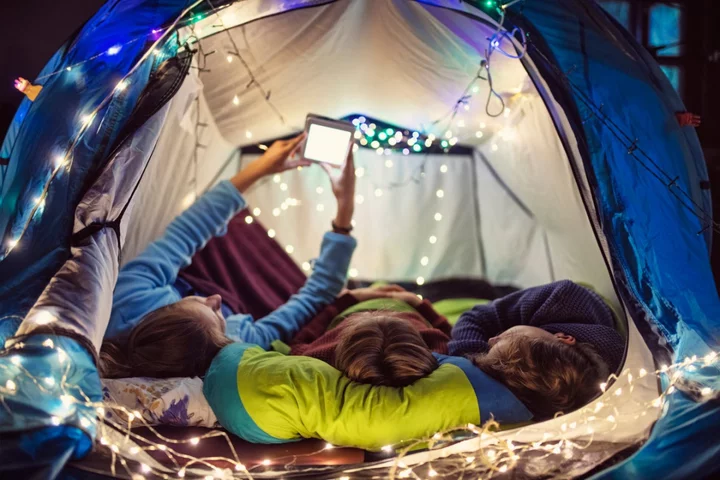
Some children avoid sleepovers due to fears of wetting the bed
Eight in 10 children who experience bedwetting have never attended a sleepover - because they’re too embarrassed. A survey of 742 adults, with children aged 4-11, found that 69 per cent of kids have turned down an invite to a sleepover party. And nearly as many (67 per cent) of parents have declined an invitation on behalf of their child. To help parents and kids deal with the experience, and help kids make friends and gain independence through sleepovers, Pampers Ninjamas teamed up with Dr Ranj Singh on educational and fun content discussing bedwetting, and how to prepare for nights out of the home. The three-part series provides education about why bladder leaks can happen, as well as practical tips on how to manage them, particularly during sleepover moments. Paediatrician, TV presenter and author Dr Ranj, said: “Sleepovers can play an important role in developing the confidence and independence of children, as well as for their enjoyment. “So I am proud to be helping the 82 per cent of children who are currently missing out, to offer practical advice as to how to better prepare for overnight stays with friends and family.” The research also found more than a quarter (26 per cent) of respondents are not comfortable discussing bedwetting with parents hosting sleepovers. And 35 per cent report an increase in bedwetting before going back to school, suggesting scholastic stress could be a trigger. To combat the situation, 76 per cent have invested in a waterproof mattress, while 68 per cent have purchased nappies for older children. Read More Playing with dolls could help a child’s social development Study finds free childcare reform has ‘little benefit’ to poorer families Most children in kinship care living with at least one grandparent, figures show
2023-09-28 17:45
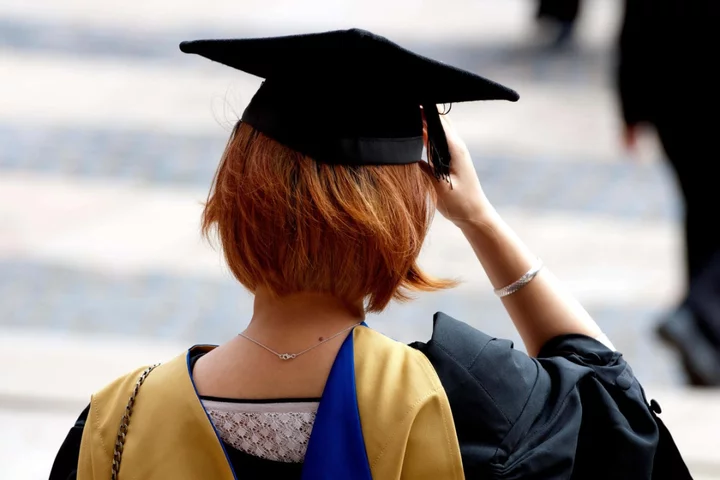
Female students ‘more than twice as likely’ to be affected by poor mental health, research shows
Female university students are more than twice as likely as male students to say they have been affected by poor mental health, new analysis suggests. Data shows 12% of female students say they have been affected, compared to 5% of males. Reported mental health problems among university students have almost tripled in recent years, according to the analysis. The percentage of undergraduate students at universities across the UK who said they had experienced mental health difficulties rose from 6% to 16% between the 2016/17 and 2022/23 academic years. It means one in six undergraduates now reports experiencing mental health challenges. The findings suggest further action should be taken to prevent mental health difficulties arising wherever possible, and that services are adequately resourced to support students quickly when they need help Professor Michael Sanders, King’s College London Analysis by the Policy Institute at King’s College London and the Centre for Transforming Access and Student Outcomes in Higher Education (TASO) found a significant part of this increase occurred in the last 12 months, a period during which the cost-of-living crisis intensified. Poor mental health is by far the most common reason for students wanting to drop out of university. Among those considering dropping out, the proportion citing financial distress as the main reason has risen from 3.5% to 8% between 2022 and 2023. But the general upward trend in mental health problems predates both the rise in inflation and the Covid-19 pandemic, indicating that other factors are likely to be at play, researchers said. The analysis – which drew on a dataset of 82,682 full-time UK undergraduates over seven years – shows some groups are more affected than others. Of the non-binary respondents, 42% said they have been affected by poor mental health, along with 30% of trans people. Bisexual people (28%) have the highest average levels of mental health difficulties among LGBTQ groups across the data, while gay men (14%) have the lowest – although this is still greater than the level seen among straight people (7%). White students (12%) have on average worse mental health than their peers from other ethnicities, but those with a “mixed” ethnicity (12%) are just as likely to have mental health difficulties. Undergraduates who attended state schools (15%) have on average worse mental health than their peers who attended private school (11%), while students who get most of their money through a maintenance loan, grant or paid work are more likely to have mental health difficulties than those on scholarships or with family support. Michael Sanders, professor of public policy at the Policy Institute and author of the study, said: “It’s clear the experiences of mental ill-health among students are deeply unequal, and exist along much the same lines as in society at large, with those from the most disadvantaged backgrounds or who often face discrimination being most likely in general to report struggles with their mental health. “The findings suggest further action should be taken to prevent mental health difficulties arising wherever possible, and that services are adequately resourced to support students quickly when they need help.” Dr Omar Khan, chief executive officer of TASO, said: “This report highlights the persistent and widespread mental health challenges faced by students. “While Covid and the cost-of-living crisis have clearly exacerbated such challenges, the upward trend is not new. “We’re working with the higher education sector to better understand what works to improve mental health outcomes for all students.” It comes as a separate report from the NHS Race and Health Observatory calls for more mental health support for people from Gypsy, Roma and Traveller Communities in England. It said that it is estimated that suicide rates among these groups are up to seven times higher than in other communities. Dr Habib Naqvi, chief executive of the NHS Race and Health Observatory, said: “We know that Gypsy, Roma, and Traveller communities face stark challenges in accessing psychological therapies and other mental health services. “This report lays bare the mental health issues and stigma faced by these communities first hand.” Read More Charity boss speaks out over ‘traumatic’ encounter with royal aide Ukraine war’s heaviest fight rages in east - follow live Many parents of under 5s on less than £50k ‘quit work due to childcare costs’ – survey 5 trainer trends that will be everywhere this autumn 11 ways to work autumnal wonder at home
2023-09-28 16:59
